Members of the Chair
The Chair’s team consists of several members from all continents. Based on each member’s geographical spheres of interest, which represent a highly diverse sampling of countries or regions, the Chair will establish a network of specialists from all over the world, enabling it to consequently expand its areas of activities.
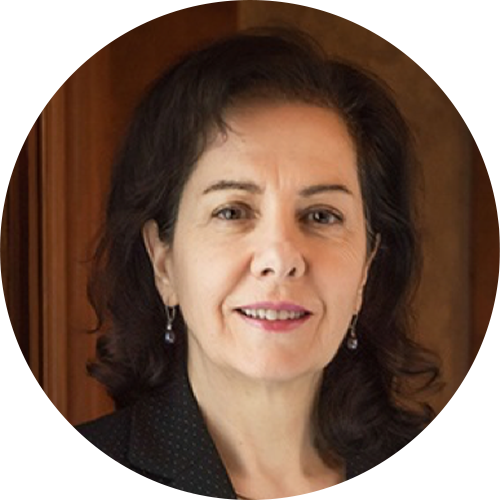
Senator Raymonde Saint-Germain
Is an experienced public administrator. She served in several senior multidisciplinary positions at the national and international levels, including as Quebec Ombudsperson, Deputy Minister of Government Services, Deputy Minister of Relations with Citizens and Immigration, Assistant Deputy Minister of International Relations, and Quebec Official Publisher. She has chaired and been a member of many governance committees, boards of directors, and audit committees in the public sector, in academia and in community and philanthropic organizations. Senator Saint-Germain served as chair of the Association internationale des ombudsmans et médiateurs de la francophonie; vice-chair and chair of the Foundation communautaire de Grand Québec’s audit committee; collaborator to Laval University’s Research Chair on Democracy and Parliamentary Institutions; trainer for the Ombuds professional development programs at York University’s Osgoode Hall Law School and the Université de Sherbrooke; co-chair of the United Way campaign, public and parapublic sectors; member of the board of directors of the Raoul Dandurand Chair of Strategic and Diplomatic Studies of the University of Quebec at Montreal; and member of the board of directors of the Agence Québec Wallonie-Bruxelles pour la jeunesse. She is a member of the executive committees of the Canadian Section of ParlAmericas and the Canadian Group of the Inter-Parliamentary Union.
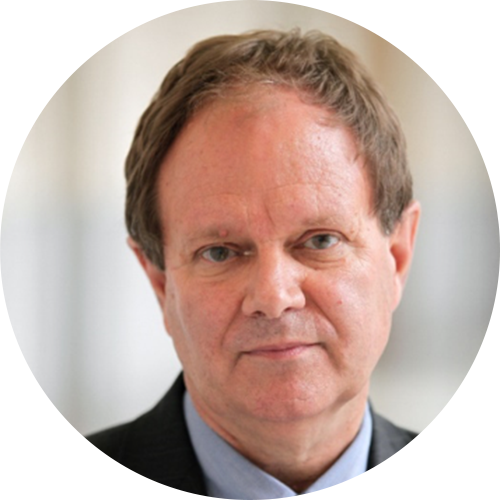
Prof. James F. Hollifield
Is a Professor of Political Science, Ora Nixon Arnold Chair in International Political Economy, and Director of the Tower Center at Southern Methodist University (SMU) in Dallas, Texas. He is a member of the New York Council on Foreign Relations and a Global Fellow at the Wilson Center in Washington, DC. Hollifield has written widely on issues of political and economic development with a focus on migration, and he has served as an advisor to governments in North and South America, Europe, the Middle East, and Africa. He consults with many international organizations, including the United Nations, the World Bank, the Inter-American Development Bank, the European Union, the OECD, and the Organization of American States. In addition to SMU, he has taught at Brandeis University, served as a Research Fellow at Harvard’s Center for European Studies and MIT’s Center for International Studies, and in 1992 was appointed Associate Director of Research at the CNRS and Sciences Po in Paris. He is currently a Fellow at the Institut zur Zukunft der Arbeit (IZA) at the University of Bonn and the Global Migration Centre at the Graduate Institute of International and Development Studies in Geneva. In 2016, Hollifield received a Distinguished Scholar Award from the International Studies Association. In September 2021, he joined the Paris IAS as part of the French Institutes for Advanced Study fellowship program – FIAS – co-funded by the European Union’s Horizon 2020 research and innovation programme under the Marie Skłodowska-Curie grant agreement No 945408. His fellowship also benefits from the support of the RFIEA+ LABEX, with a national funding (Grant ANR-11-LABX-0027-01).
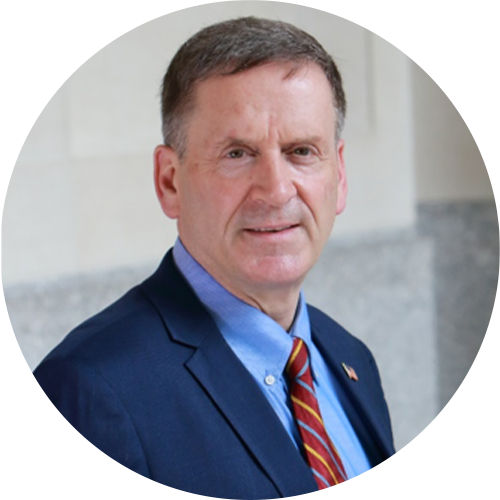
Prof. James F. HMr. Ambassador Mark Greenollifield
Serves as the President, Director, and CEO of Washington, DC’s Wilson Center. Wilson is unique among American policy institutes in that it’s Congressionally chartered, scholarship driven, and fiercely non-partisan and independent. Green is also the author of the “Stubborn Things” blog.
From 2017 to 2020, Green served as Administrator of the U.S. Agency for International Development. He has also served as President of the International Republican Institute, Executive Director of the McCain Institute, President of the Initiative for Global Development, and senior director at the U.S. Global Leadership Coalition. Green served as the U.S. Ambassador to Tanzania from mid-2007 to early 2009, as well as four terms in the U.S. House of Representatives representing Wisconsin’s 8th District.
Green served on the Board of Directors of the Millennium Challenge Corporation during both the Obama and Trump Administrations, and has served on the Bush Institute’s Human Freedom Advisory Council and the Board of the Consensus for Development Reform. He holds a law degree from the University of Wisconsin Law School and a bachelor’s degree from the University of Wisconsin–Eau Claire. In 2012, he was awarded an honorary Doctor of Science from Georgetown University’s School of Nursing and Health Studies. He has received special honors from President Jakaya Kikwete of Tanzania and President Ivan Duque of Colombia.
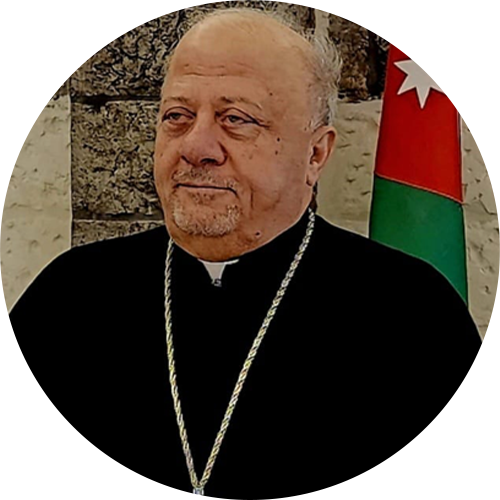
Father Nabil Haddad
Is the founder and executive director of the Jordanian Center for Interfaith and Interreligious Research (known as “Taa’awun”) in Amman, Jordan. He has been active in promoting understanding and coexistence among followers of religions for over three decades. He has served and continues to serve in various administrative positions, ecclesiastical bodies, social, religious, national events, and human rights institutions. In his current position as the founder and executive director of “Taa’awun” since its establishment in 2003, he has played a leading role, both regionally and internationally, in events related to dialogue between civilizations, interfaith dialogue, and religious coexistence, particularly Christian-Muslim dialogue. He has organized numerous workshops and international conferences in Amman with the participation of senior religious and intellectual leaders and dialogue stakeholders. He has represented Jordan in several international conferences on interfaith and intercultural dialogue in Europe, the United States, and elsewhere, making significant efforts that have positioned the center at the forefront of discussions on tolerance, coexistence, religious freedom, interfaith dialogue, human dignity, human rights, and social work.
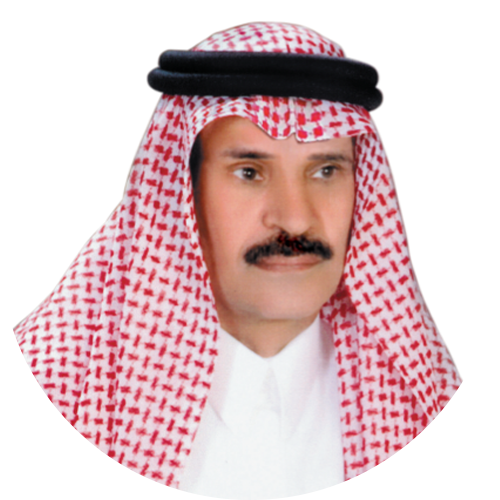
M. Khaled bin Hamad
Al Malik
Editor-in-Chief of Al Jazeera Saudi Arabia – Currently
Honorary President of the Gulf Press Union – Currently
Chairman of the Saudi Journalists Association – Formerly until January 2024
Chairman of the Gulf Press Union – Formerly until January 2024
He has been working in journalism for over fifty years and continues to do so. During this period:
1- He transformed Al Jazeera newspaper from a weekly publication to a daily newspaper for over forty years.
2- Many media celebrities and editors-in-chief graduated from Al Jazeera newspaper during his tenure as editor-in-chief.
3- He launched the « Al-Massaiya » newspaper as the first daily evening publication in the Gulf Cooperation Council countries, which continued for twenty years before ceasing publication.
4- He has published 17 books, some of which are about journalism and media.
5- He has delivered numerous lectures at universities and literary and cultural clubs in the Kingdom of Saudi Arabia.
6- He has accepted invitations to give lectures in several countries, including Japan, South Korea, Italy, Germany, Azerbaijan, Egypt, Syria, Morocco, Bahrain, Poland, Uzbekistan, Bulgaria, and others.

Mr. Sadguru Brahmeshan Brahmeshanand Acharya Swamiji
- Recipient of ‘Padma Shri’ Award
- Ambassador of Peace
- Interfaith Peace Promoter
- Vedic Researcher, Yog & Sanskrit Scholar.
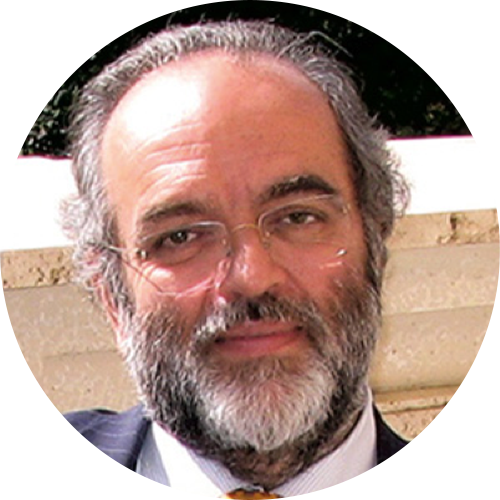
Mr. Michele Capasso
Was born in a village located on the slopes of Mount Vesuvius (Naples) on June 14, 1954. In 1987, he founded the “Mediterranean Foundation,” a Euro-Mediterranean network for dialogue between societies and cultures with headquarters in different countries.
With a broad interest in the world, he pursued various professions: photographer (1967-1972), gallery owner (1972-1978), painter (since 1972), and architect-engineer (1978-1990), realizing over 500 significant projects worldwide.
In 1990, he suspended his professional activities, selling most of his assets to aid victims of wars, dedicating 37 years of his life to dialogue and peaceful coexistence among peoples.
In 1987, he translated Gustavo Adolfo Rol’s idea into the politico-institutional project of the “United States of the World,” involving over 180 countries and 16,000 organizations and civil society institutions in the following years, starting with the region of the “Greater Mediterranean.” Honorary professor at several universities, he is the author of over 150 studies and publications in multiple languages.
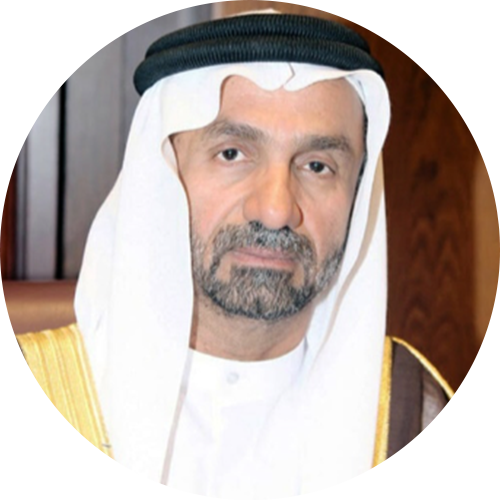
Mr. Ahmed bin Mohammed Al Jrawan
Al Shamsi
Nationality: United Arab Emirates
Date of Birth: August 25, 1962
Languages: Arabic, English, French
Positions:
- President of the Global Council for Tolerance and Peace.
- President of the General Union of Arab Experts.
- President of the Executive Bureau of the Forum of Arab Unions at the League of Arab States.
- President of the Paris Forum for Peace and Development.
- President of the Board of Trustees of the Foundation for Islamic Culture and Religious Tolerance in Spain.
- Former President of the Arab Parliament (from December 12, 2012, to December 12, 2016).
- Former member of the Federal National Council of the United Arab Emirates (from 2011 to 2018).
- Former Chairman of the Sharjah Classic Cars Club Board.
- Former member of the Board of Directors of the Sharjah Chamber of Commerce and Industry.
- Former member of the Executive Committee of International Commercial Arbitration in Sharjah.
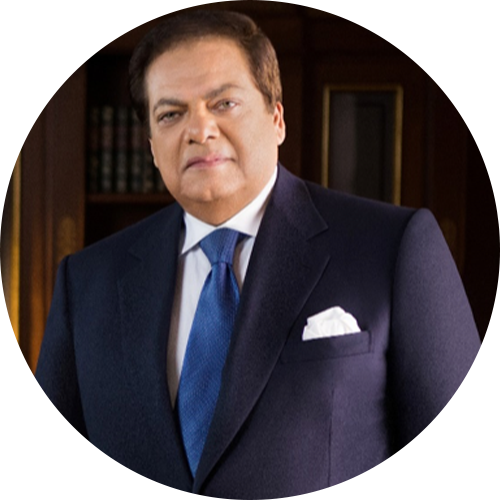
M. Mohamed Abou El-Enein
- One of the most prominent figures in politics, economics and industry, The Parliament deputy speaker,
- The Honorary President of The Parliamentary Assembly of the Mediterranean (PAM),
- The Chairman of the Egyptian-European Business Council,
- “Abou El-Enein” established an economic empire that enjoys great confidence in the world “Cleopatra Group”
- It has activities in all fields such as industry, agriculture, urban cities, aviation, tourist resorts, and media.
- He founded Abou El-Enein Foundation for Charitable and Social Activities in 1981
- Its activities vary between education and literacy, in addition to establishing and developing schools, etablishing and developing hospitals
- It works to empower women economically and socially, help orphans to get married, and provide assistance to widows and divorced women, and foreign students.
- It provides gifts and assistance to thousands of families registered with it.
- It built entire villages following floods and earthquake.
- Its prominent role in providing aid to the people of Gaza appeared within the National Alliance for Civil Action.
- Abou El-Enein received many local and international awards:
- Award for the Best Parliamentarian in the Mediterranean Countries 2008,
- He won the Mediterranean Nobel Prize for his political career in bringing people together.
- The first Egyptian to win ‘the Best Manufacturer in Africa’ award.
- He won the Social Giving Star Award from Italy,
- The “Inpex” Award for Creativity and Innovation from USA,
- ‘The Golden Ladder Award’ from Italy, and UNIDO award from the United Nations.
- Award of the largest exporter to Japan,
- He won the Best Industrialist Award in the African Continent in 2024.
- He won the Digital Government Award from Dubai as the best Arab parliamentarian 2024.
- National Council on U.S.-Arab Relations Presented him ‘Public Service Achievement Award’ as an exceptional figure.
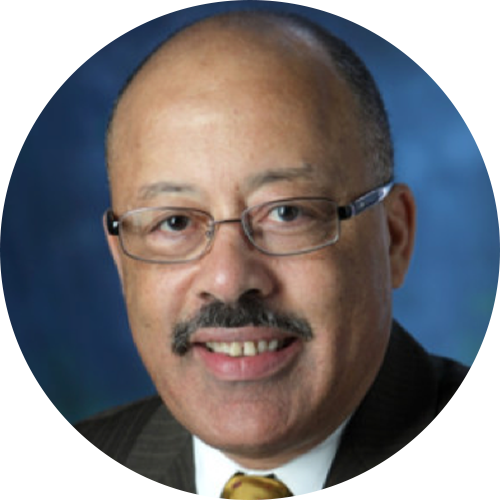
Mr. Effenus Henderson
Is President and CEO of HenderWorks, Inc. (www.henderworks.com ) and President / Co-Founder of Institute for Sustainable Diversity and Inclusion (www.i4sdi.org ). He served as Chief Diversity Officer for Weyerhaeuser Company, Federal Way, Washington until his retirement in December 2013. He is an internationally recognized diversity thought leader and has been invited by numerous companies and organizations to share his expertise. He has provided advisory support on diversity to the United Nations, US Federal Government’s EPA office, Office of Personnel Management, US Forest Service, State Department and the USDA.
As President and Co-Founder of ISDI, he helps provide diversity and inclusion training sessions to Northwest Corporations including Nordstrom, Boeing, Alaska Airlines, Port of Seattle, T- Mobile, Weyerhaeuser, Costco, and others.
He has addressed members of the General Assembly of the United Nations on intercultural and interreligious diversity, and addressed a high-level panel of the Alliance of Civilizations in Madrid, Spain in 2008, Istanbul Turkey in 2009, Rio de Janeiro, Brazil in 2010 and Doha, Qatar in 2011. He was a keynote speaker at the 9th and 10th Forum at Fez Morocco (2012, 2013) and at the 2nd World Forum on Intercultural Dialogue held in Baku, Azerbaijan (2013). He currently serves as a member of the Advisory Board of the Global Dialogue Foundation, located in Melbourne, Australia.
He is a member of the United States Technical Committee 260 (human resource standards) for the International Organization for Standardization (ISO) and convener for the development of global diversity and inclusion standards. His background includes development of diversity and inclusion change agendas, formation and oversight of employee resource groups, and training and skill building workshops and speaking engagements in over 18 foreign countries.
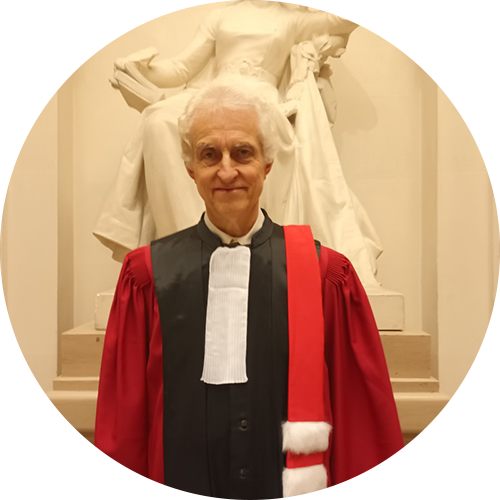
Mr. Philippe Marchesin
Philippe Marchesin is a French geopolitical analyst and lecturer in the Department of Political Science at the University of Paris 1 Panthéon-Sorbonne. He holds a doctorate in law (1982) and a state doctorate in political science (1990).
Philippe Marchesin specializes in North-South relations, particularly in matters of cooperation and development. The originality of his approach lies in combining theoretical reflection with extensive fieldwork. He has taught for about ten years in Mauritania (at the National School of Administration and the Faculty of Law of Nouakchott), Turkey (at Galatasaray University), and Belarus (at the Franco-Belarusian Faculty of Political Science).
His most significant work has focused on food security, tribal dynamics in Mauritania, French cooperation, Belarus, and North-South relations. He has been a member of the executive committee of GEMDEV (Group for the Study of Globalization and Development), president of the Permanent Observatory of French Cooperation, director of the specialized higher education diploma in Development and Cooperation at the University of Paris 1, head of the political science option for the advanced studies diploma in African Studies at the University of Paris 1, and co-dean of the Franco-Belarusian Faculty of Political Science.
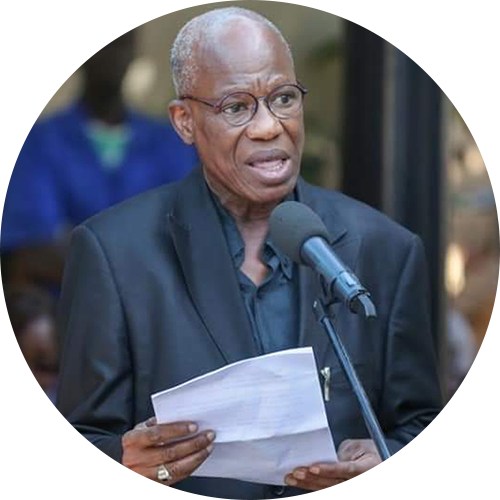
Mr Amadou Lamine Sall
was born in 1951 in Kaolack. He is the Founder of the African House of International Poetry, and he presides over the destinies of the International Biennale of Poetry in Dakar, Senegal. Winner in 1991 of the Prix du rayonnement de la langue et de la littérature françaises, awarded by the French Academy. He is the author of numerous anthologies of poetry that have been translated into several languages. In October 2008 he wrote several poems about Arthur Rimbaud while he was in residence at the Maison Rimbaud in Charleville-Mézières. Amadou Lamine Sall always writes his poems in free verse, with very little punctuation.
Amadou Lamine Sall’s poetry is on the curriculum of many universities and his writing is also the subject of several doctoral theses.
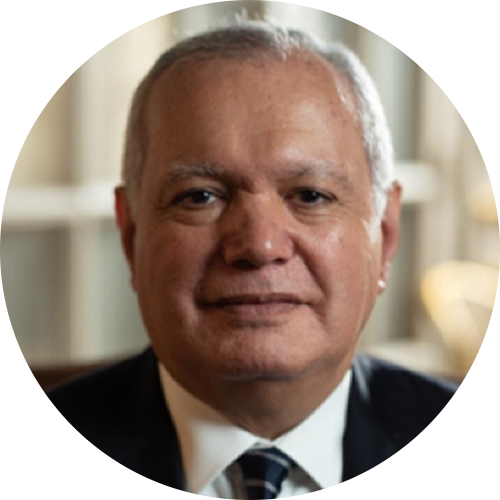
Mr. Mohamed El-Arabi
- Former Minister of Foreign Affairs of Egypt.
- Former President of the Foreign Relations Committee of the Egyptian Parliament.
- President of the Egyptian Council of Foreign Affairs.
- President of the Board of Directors of the Chaf Center…
- Joined the Egyptian diplomatic service on March 14, 1976.
- Worked in Egyptian embassies in Kuwait, London, Washington, and Tel Aviv.
- Ambassador of Egypt in Berlin, Germany, from 2001 to 2008.
- Assistant to the Minister of Foreign Affairs and Director of the Minister’s Office, Amr Moussa, from 1999 to 2001.
- Assistant to the Minister of Foreign Affairs, Ahmed Aboul Gheit, for Economic Affairs from 2008 to 2011.
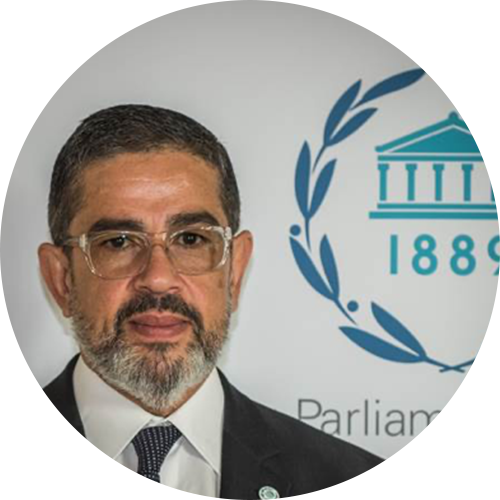
Mr. Omar Mokhtar
Ambassador, Senior Advisor to the Secretary General for the Inter-Parliamentary Union.
Ambassador Omar was born in 1965 and started his diplomatic career in 1988 at the Ministry of Foreign Affairs of Egypt. He joined the Inter-Parliamentary Union in 2012 and he currently serves as the Senior Advisor to the Secretary General. He is mandated for the establishment of the work of the Inter-Parliamentary Union in Peace and Security, Counter-Terrorism and Science and Technology. He is also mandated to facilitate dialogue in countries in conflict with current focus on Yemen and Libya.
He started his professional career as a member of the Egyptian delegation for Madrid Peace Conference in 1991. He then became a diplomat in the Egyptian Embassy in Madrid, where he was responsible for the Regional Economic Development Working Group for peace (REDWG) which was one of the results of the Madrid Peace Agreement between Palestine, Israel, Egypt and Jordan. Continuing his work in the peace process activities, he served from 1996 to 2001 in Amman, Jordan, as a Representative of Egypt in the REDWG for peace projects, peace negotiations and the status of refugees of UNRWA in the region.
He served as the Vice-Ambassador in Tokyo, Japan, from 2002 to 2006, where he worked on projects in science and technology and renewable energies. He concluded three major renewable energy projects in the region for wind and solar energies. He also worked on the development of Japanese Schools in Egypt and negotiated the establishment for the Grand Egyptian Museum with the Japanese Social Development Fund in 2006.
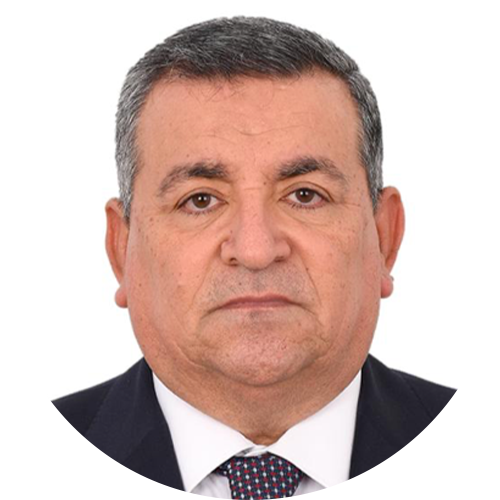
Mr. Osama Hassan Heikal
Is a prominent figure known for his significant contributions and roles in various capacities. With a wealth of experience and expertise, he has served as the Former Minister of Information and as the Former State Minister of Media and Information. Additionally, he has held the prestigious position of CEO of the EMPC and has been actively involved as the Former Head of the Media & Culture Committee in the Egyptian Parliament. He is also recognized as a distinguished Columnist and Writer, with past responsibilities including the role of Editor-in-Chief at Al Wafd Daily Newspaper. His professional engagements extend beyond his ministerial roles. He has served as a member of the Board of Trustees October 6 University in Egypt since 2018 and holds a position as a Non-executive Board Member at the Holding Company for Investment and Development in Egypt since 2019. From 2014 to 2022, Heikal served as the Chairman of the Board and CEO of the Egyptian Media Production City (EMPC), contributing significantly to its operations and growth. He also chaired the Board of Directors of the International Academy for Engineering and Media Science (IAEMS) in Egypt during the same period, playing a pivotal role in its strategic direction and development.
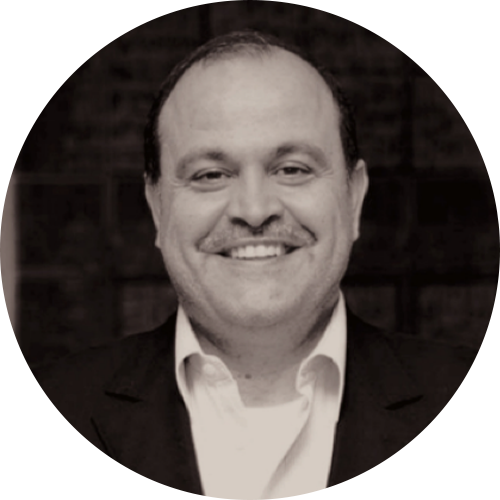
Mr. Hussein Majali
Served the Hashemite Kingdom of Jordan in various leadership roles in both the government and the military for over 30 years before retiring with the rank of a four-star general. His service to the Hashemite Kingdom of Jordan contributed significantly to the advancement of the government’s strategic priority of decentralizing power to local municipalities. He prepared the legislative and regulatory framework for decentralization, subsequently passed into law by Parliament, as well as the Municipal Elections Law and the organization of successful municipal elections. In addition, during his service as the Head of the Jordanian Public Security Directorate, his ‘soft security’ approach led to no civilian deaths or serious injuries during the Arab Spring movement; an accomplishment commended by the international media and subsequently studied by police forces worldwide.
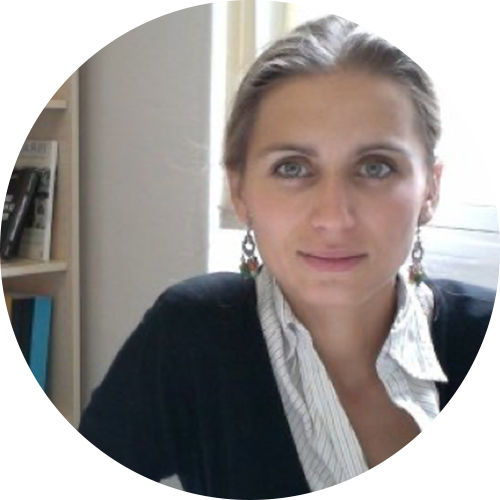
Prof. Hélène Thiollet
Is a CNRS permanent researcher at the Center for International Studies, Sciences Po. She is a graduate of Ecole normale supérieure (Ulm A/L98), holds a PhD in Political Science from Sciences Po, MA degrees in Geography and in Classics from La Sorbonne. She was a postdoc at Oxford university and a Teaching Fellow at Université Paris Nord. Helene’s main interests lie in the politics of migration and asylum in the Global South. She focuses her empirical work on the Middle East and Sub-Saharan Africa. She also works on crises and political transformations linked to migration and asylum. She teaches international relations, comparative politics and migration studies at Sciences Po and EHESS. her research has been published in International American Behavioral Scientist, Migration Review, Critique Internationale, REMI, Journal of Ethnic and Migration Studies, International Journal of Labor and Working Class History.
Her recent publications include Migration Politics across the World, co-edited wtih Katharina Natter, Routledge, 2024; Research Handbook on The Institutions of Migration Governance. co-decited wtih Antoine Pécoud (eds.), London, Edward Elgar Publishing, 2023, Migration, Urbanity and Cosmopolitanism in a Globalized World. co-decited wtih Camille Schmoll, Catherine Lejeune & Delphine Pagès el Karoui. Springer IMISCOE series, 2021 and Migrations en Méditerranée. Permanences et mutations à l’heure des révolutions et des crises co-decited wtih Camille Schmoll & Catherine Wihtol de Wenden, CNRS Editions, 2015, 382 p.
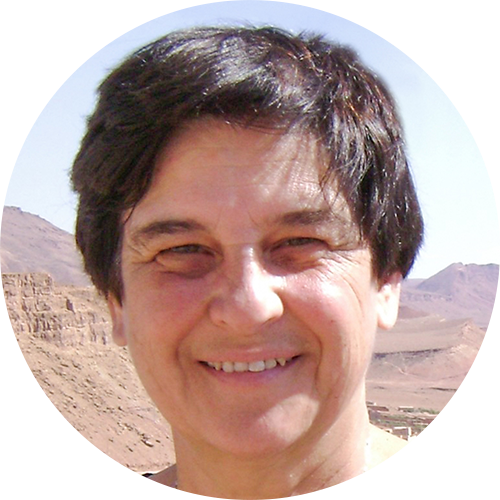
Prof. Maria Eugenia Cosio Zavala
Is a distinguished Professor of Demography at the University of Paris Nanterre (France) and a Visiting Professor at El Colegio de Mexico (Mexico). Her research focuses on Demography, Fertility, and Families in Mexico, Gender, Migration, Population, and Social Inequalities, as well as Demographic Policies worldwide. Her research has resulted in numerous books and articles in French, English, and Spanish.
In 2011, she published “Jóvenes fronterizos, Border Youth, Expectativas de vida familiar, educación y trabajo hacia la adultez” (with Norma Ojeda de la Peña, COLEF); in 2014, “Género en movimiento. Familias y migraciones”; in 2016 “Generaciones, cursos de vida y desigualdad social en México” (with Marie Laure Coubès and Patricio Solís); and in 2023 “La Odisea de las generaciones en México: de las historias de vida a los territorios” (with Pascal Sebille).
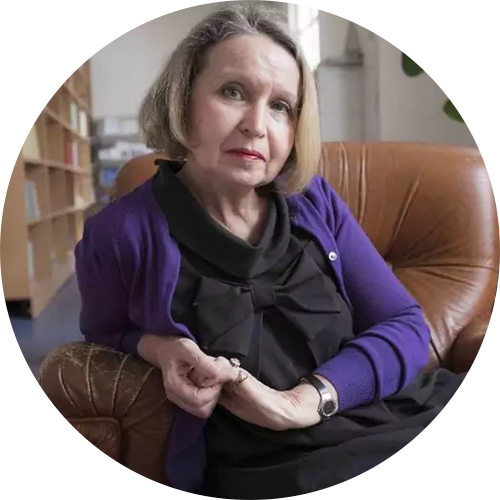
Prof. Catherine Wihtol de Wenden
Is a senior research fellow at CNRS (CERI, Sciences Po). She holds a degree from Sciences Po, a Doctorate in Political Science from Sciences Po, and two Advanced Degrees in Public Law and Political Science from the University Paris I Panthéon-Sorbonne. She specializes in international migrations. Her work has focused on: Immigrants and Politics in France (1988, Presses de Sciences Po), Citizenship (European Citizenship, Presses de Sciences Po 1992), the “beurgeoisie” and the civic associative movement arising from immigration in France (with Rémy Leveau, CNRS Editions 2001), Europe and its migrations, and the globalization of migrations (The Human Globalization, PUF 2009, The New Migrations 2013, and collective work Migrations in the Mediterranean, CNRS Editions 2015), The Migration Issue in the 21st Century (Presses de Sciences Po 2017, 3rd edition), Should Borders be Opened? (Presses de Sciences Po 2017, 3rd edition). Her latest works include the World Atlas of Migrations (6th edition 2021, translated into several languages), Common Misconceptions about Migrations (L’Harmattan, IREMMO, 2022), Figures of the Other. Perceptions of Immigration in France 1870-2022 (CNRS Editions 2022), and Migrations and International Relations (IMISCOE, Springer, 2023). She teaches at Sciences Po Paris and Lille and has been a visiting professor at several Italian universities (La Sapienza, Rome, State University of Milan). She has served as an expert for several international organizations (European Commission and UNHCR) and is a member of the advisory board of the Immigration Museum in Paris.
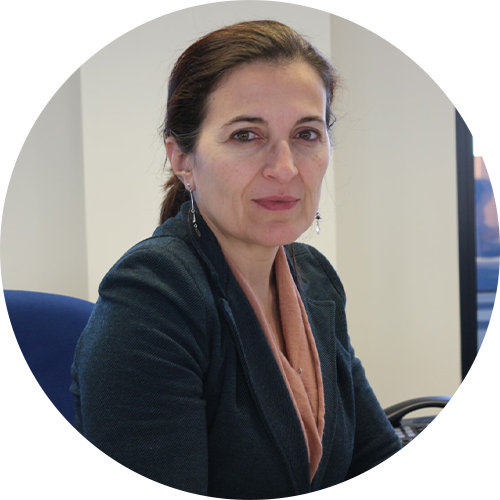
Prof. Lola Bañon Castellón
Has a Ph.D. in Journalism from the University of Valencia and a graduate in Information Sciences from the Autonomous University of Barcelona, is a professor of television journalism at the Faculty of Philology, Translation, and Communication of the University of Valencia. She also works as a collaborating professor in institutional and corporate communication at the Open University of Catalonia. With 25 years of experience in journalism, she has worked for the Valencian regional television, focusing mainly on international news. As a special correspondent, she has covered conflicts in the Middle East and North Africa, as well as diplomatic summits of the European Union. In the field of international relations, she has led the Foundation Assembly of the Citizens of the Mediterranean (FACM) and has taught international mediation in the Master of Mediation at the International University of Valencia. She also coordinated the Expert Committee that advised the Parliament of València in drafting the law aimed at restoring the public radio and television service in the Valencian Community.
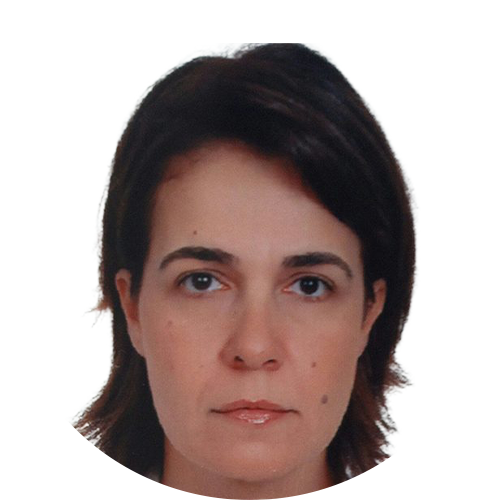
Prof. Mama Hamimida
- PhD in Economics from the University of Nanterre – Paris X in 1996
- Researcher-Professor – Hassan II University of Casablanca, Specialization: Development Economics – International Economic Relations since 1997.
- Permanent researcher at the Observatory on Africa (CAP-Africa), Center for Studies on Integrations and Globalization, University of Quebec at Montreal.
- Permanent researcher in the research group on Africa and Latin America (Graal). University of Alberta – Canada.
- Project Manager at UNDP/UNIFEM for the project “Strengthening the Capacities of Family Courts”.
- National Project Coordinator at the United Nations Development Programme (UNDP) for the “Support to Parliament, House of Representatives” Program.
- Consultant within the framework of the Business Climate Development Strategy (SDCA), a joint initiative of the OECD, the World Bank, and the MENA Steering Group.
- Consultant for businesses, international organizations, and civil society organizations.
- Author of several publications in the economic field (articles, books, reports, studies, etc.).
- Member of the scientific committee of several national, international journals, and collective works.
- Founder of the Master’s Degree in Economic Development and Program Engineering (DEIP), FSJESM.
- Founding member of the Laboratories: Economic Performance and Logistics (PEL) and Economic Regulations and Strategic Intelligence (REIS). FSJESM.
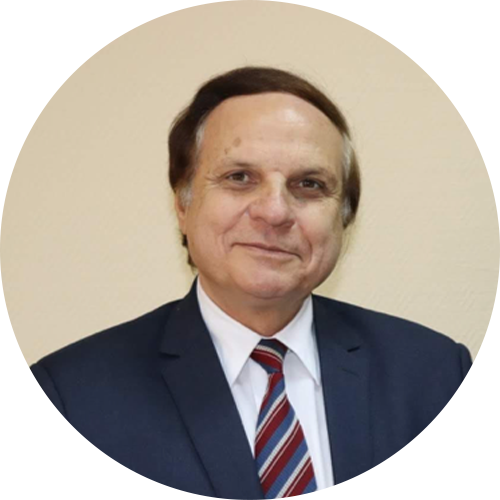
Dr. Sami Mohamed Rabei Al-Sharif
Secretary-General of the Association of Islamic Universities
Dean of the Faculty of Media at the Modern University of Technology and Information MTI
- Former Minister of Information and President of the Union of Radio and Television.
- Deputy Dean of the Faculty for Education and Student Affairs from 2000 to 2006.
- Member of several scientific and public committees, including membership in the Supreme Council of the Noblemen Union and the Supreme Council for Islamic Affairs.
- Member of the Alliance of Civilizations Chair at the Euromed University of Fez, Morocco.
- Member of the Media Committee of the National Council for Women and the Arbitration Committee for the Promotion of Professors and Assistant Professors in Media Studies and Al-Azhar University.
- Published 22 books in various fields of media. – Supervised 174 doctoral and master’s theses at Egyptian and Arab universities.
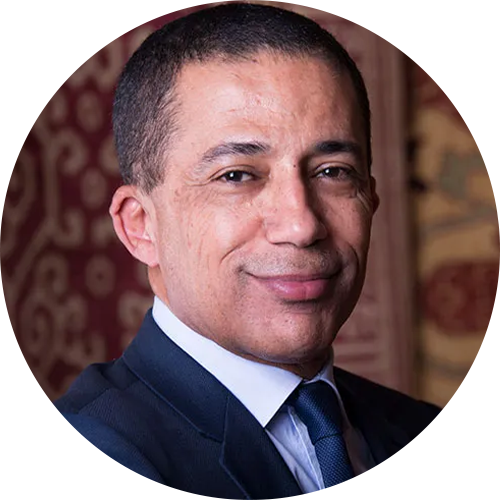
Prof. Ghazi Gherairi
A jurist, academic, and diplomat.
With a PhD in Public Law and Political Science, he teaches public law at the University of Carthage, the Diplomatic Institute, and the Tunis School of Politics.
From 2016 to 2022, he served as Tunisia’s ambassador to UNESCO and the International Organization of La Francophonie.
From 1998 to 2018, he was the Secretary-General of the International Academy of Constitutional Law.
He was a member and spokesperson for the High Authority for the Achievement of the Objectives of the Revolution, Political Reform, and Democratic Transition in Tunisia. (2011)
He has also:
- Been a Member of the Expert Committee designated by the national dialogue to support the drafting of the new Tunisian Constitution (2013-2014).
- Been tasked by the United Nations to document the experience of the National Dialogue in Tunisia, recipient of the Nobel Peace Prize 2015. (2015-2016)
- Served as a Senior Field Manager Tunisia OECD-MENA Governance Program. (2013-2014)
- Acted as a Senior Expert for drafting the constitution of Yemen (Friedrich Ebert Foundation). (2014-2015)
- Served as a Senior Expert for drafting the Libyan Constitution for: (UNDP/Democracy Reporting International/Cawtar and Libyan Women’s Platform/Danish Institute for Human Rights). (2014-2015)
- Served as the President of the Expert Committee tasked with drafting the draft law on municipal and regional electoral law (Ministry of the Interior & CILG). (2015) -Been a Member of the drafting committee for the law on the Constitutional Court (Ministry of Justice). (2015)
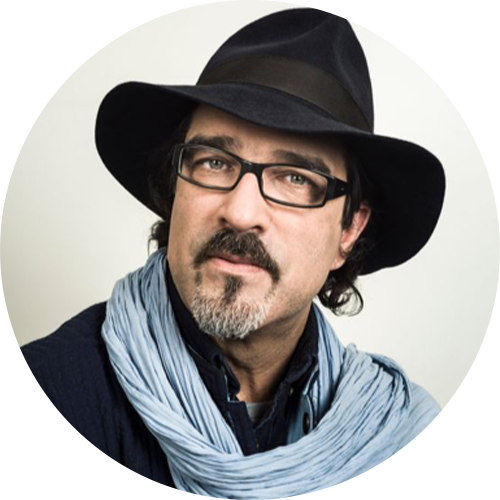
Mr. Atiq Rahimi
Is born in Kabul and he left his country, invaded by the Soviets, at the age of 22, to seek refuge first in Pakistan, then in France.
As a novelist, he published his first book, Terre et cendres, in 2000; two years later, Les mille maisons du rêve et de la terreur, in 2005 Le Retour imaginaire, an account with photos of his return to his homeland. In 2008, he published his first work written in French, Syngué sabour, pierre de patience, crowned by the Goncourt Prize, followed by Maudit soit Dostoïevski in 2011; La ballade du calme in 2015. After a long stay in Rwanda to make a film, he wrote a poetic tale, L’Invité du miroir, inspired by Rwandan legends and history. Then in 2022, he published his correspondence with his daughter, Si seulement la nuit. His latest work, Mehsti, chair des mots, is dedicated to the life and poems of Mehsti Gandjawi, a Persian-speaking poet from the 12th century. All his works are translated into about twenty languages.
As a filmmaker, he directs documentary films, and in 2004 he made his first fiction film, Terre et cendres, based on his novel, which he also adapted into an opera in 2011. The film presented at the Cannes Film Festival in 2004 won the Regard vers l’avenir Prize. In 2012, in collaboration with Jean-Claude Carrière, he adapted his novel Syngué sabour for cinema, unanimously praised by critics and audiences. He has just directed his third fiction film in Rwanda, Notre Dame du Nil, an adaptation of the novel written by Scholastique Mukasonga.
As an aesthete, he invented callimorphie, a graphic art between drawing and Persian and Japanese calligraphy. His works have been exhibited at La Galerie Cinéma, the Salon d’automne de Paris, in New York…
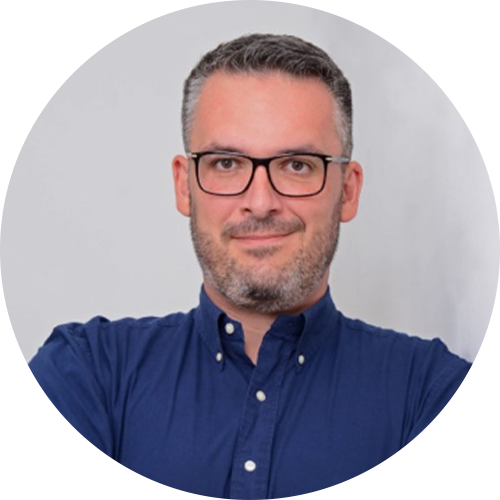
Prof. Gerasimos Tsourapas
Professor of International Relations at the University of Glasgow. He currently leads MOBSANCT, a European Research Council Starting Grant project (2022–27) on migration diplomacy across Europe, the Middle East, South and South-East Asia. He is also the Editor-in-Chief of Migration Studies (Oxford University Press). He is the author of The Politics of Migration in Modern Egypt – Strategies for Regime Survival in Autocracies (Cambridge University Press, 2018) and Migration Diplomacy in the Middle East and North Africa – Power, Mobility, and the State (Manchester University Press, 2021). His work has appeared in International Studies Quarterly, European Journal of International Relations, International Migration Review, International Political Science Review, Journal of Ethnic and Migration Studies, and other leading journals. Professor Tsourapas has received numerous awards, including the 2020 ENMISA Distinguished Book Award by the International Studies Association. His work has also been recognised by the American Political Science Association (Best Dissertation on Migration & Citizenship, 2016), the International Studies Association (Martin O. Heisler Award, 2017), and the Middle East Studies Association of North America (Graduate Student Paper Prize, 2015). He also received the inaugural 2021 ENMISA Emerging Scholar Award by the International Studies Association. Professor Tsourapas was a Fellow at the Center for European Studies, Harvard University (2019–20) and The American University in Cairo (2013–14). He received a BA in Economics and Political Science from Yale University (2006), an MSc in International Political Economy from the London School of Economics and Political Science (2007), and a PhD in Politics from SOAS, University of London (2016).
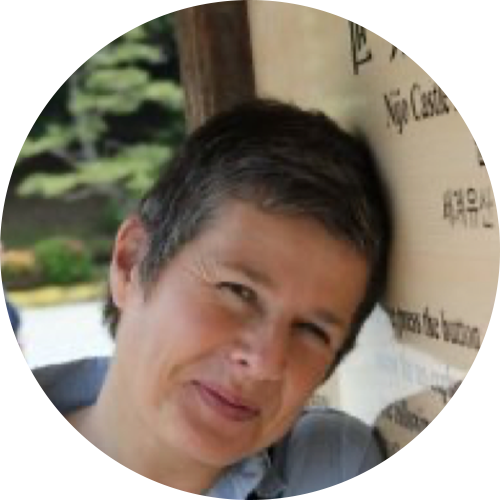
Prof. Véronique Petit
Is a professor of demography at Université Paris Cité, where she co-directs the Doctoral School of Social Sciences. She is affiliated with the Center for Populations & Development (UMR Ceped IRD – UPC). Specializing in population issues in Southern countries, her research activities focus on the fields of health and international migration. She is a member of the editorial board of the European Review of International Migrations, which she also directed for several years. Currently, her research focuses on migratory pathways and the operationalization of the governance of international migrations from the perspective of countries of origin (ANR HYCI). In Senegal, she collaborates with the MSAS and the ANSD on the measurement, access, and social inequalities of mental health.
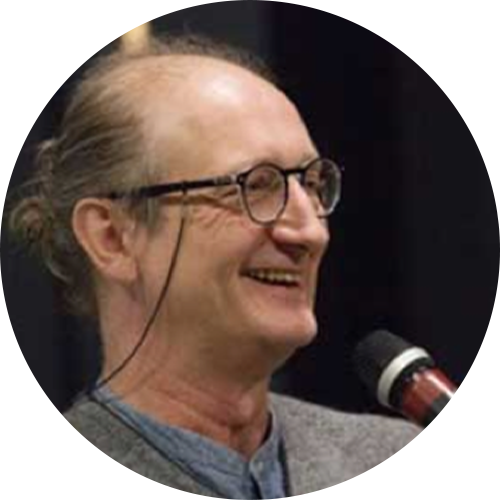
Prof. Giuseppe Sciortino
Teaches sociology at the Department of Sociology and Social Research of the University of Trento. He has been visiting professor at Haverford College, Royal University of Phnom Penh, Yale University and the University of Malmö. He has chaired (2010-14) the Research committee 16 ‘Sociological Theory’ of the International Sociological Association and he is faculty fellow of the Yale center for cultural sociology. His main research interests are social theory, international migration and the social dimension of sexual and erotic life. He is the author of Great Minds. Encounters with Social Theory (with Gianfranco Poggi, Stanford University Press, 2011). He has recently edited The Cultural Trauma of Decolonization. Colonial Returnees in the National Imagination (with Ron Eyerman, Palgrave, 2019), Populism in the Civil Sphere (with J.C. Alexander and Peter Kivisto, Polity, 2021) and the Research Handbook on the Sociology of Migration(with M. Cvajner and P. Kivisto, Edward Elgar, 2024).
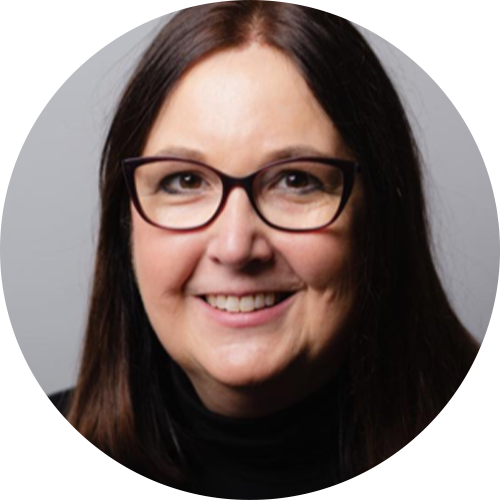
Prof. Fiona B. Adamson
Is a professor of international relations with research interests in international migration policies, mobility, and diaspora, with a particular focus on conflicts and security.
She is currently the associate editor of Security Studies and co-chair (with Erin A. Chung) of the Migration and Citizenship section of the American Political Science Association. She is an adjunct faculty member of the Queen Elizabeth II Academy for Leadership in International Affairs at Chatham House.
Fiona is a researcher in the MAGYC project (Migration Governance and Asylum Crises), funded by the EU H2020, and co-organizes (with Eiko Thielemann) the London Migration Research Group (LMRG).
Fiona earned her Ph.D. from Columbia University in New York. She joined SOAS in 2007 and served as department head from 2010 to 2013 and research director from 2018 to 2021. Previously, she was the director of the International Public Policy Program at University College London (UCL). She has held visiting and honorary positions at Harvard University, Stanford University, the University of Basel, the University of Toronto, and Humboldt University in Berlin. Her research has been funded by the Social Science Research Council (SSRC), the Guggenheim Foundation, the Ford Foundation, the Economic and Social Research Council (ESRC), the Leverhulme Trust, and the British Academy.
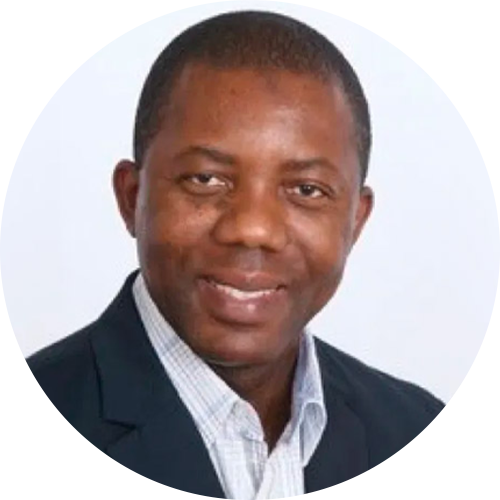
Prof. Lembe Tiky
Is a political scientist specializing in international relations and comparative politics. His research and teaching portfolio encompasses areas ranging from democracy and democratization to human rights, security, and political economy.
He is particularly interested in corruption in underdeveloped countries. He has written numerous works on the development obstacles in Cameroon and on democratization trajectories in Africa.
He has taught at prestigious institutions such as the University of Texas, Southern Methodist University, and since 2010 at the University of Connecticut. In addition to teaching, he contributes to the profession by working for the International Studies Association (ISA), where he serves as Director of Academic Development.
He is currently an Assistant Professor at Fairfield University.
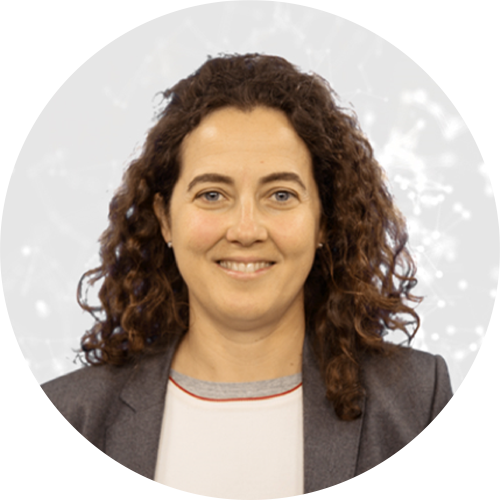
Prof. Rut Bermejo-Casado
Is associate professor in Politics and Public Policies at the Law and Social Sciences Faculty (Rey Juan Carlos University) in Madrid. She is member of the Scientific Council of Elcano Think Tank and member of the Advisory Council at the Chair in Refugees and Forced Migrants at the University Pontificia of Comillas.
Her main research area is Justice and Home Affairs public policies in Europe and research designs and methodologies. Among her recent research projects on migration and refugees is PERCEPTIONS. She has led the WP on research at PERCEPTIONS project (H2020) that was a project designed to analyse the migrants’ perceptions of Europe.
Among her recent publications on this topic:
- 2024. With Iglesias, J. and I. Bazaga, “Beyond the asylum-applications growth. The limits of the Spanish refugee reception program”, International Migration,
- 2023. With Carrasco-Granger, S., Le Louvier, K. and K. L. Hough “Structural Political-Institutional and Economic Barriers to Integration in the United Kingdom and Spain: A practitioners’ account”, Journal of Immigration, Asylum & Nationality Law, vol 37 (1), pp. 91-106.
- 2022. With M. Hazán, “Spain. The Uneasy Transition from Labor Exporter to Labor Importer and the New Challenges Ahead” in James Hollifield, Philip Martin and Pia Orrenius (eds), Controlling immigration: A global perspective, Stanford: Stanford University Press.(4th ed.)
- 2022. With J.M Sánchez-Duarte, “From a digital breach to a usage and positioning gap. ICT use in migrant women arriving to Spain since 2015”, in Akhgar, B., K. L. Hough, Y. A. Samad, P. S. Bayerl, and A. Karakostas “Information and Communications Technology in Support of Migration”, Springer, pp 93-112.
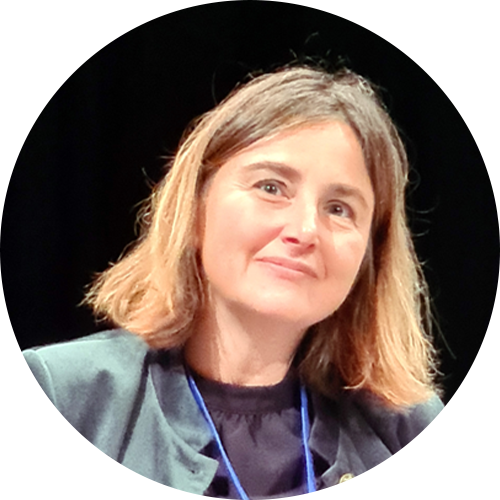
Prof. Camille Schmoll
Is a geographer, director of studies at EHESS. She is a member of the UMR Geography-cités and a fellow of the Convergences Migrations Institute. Camille Schmoll specializes in mobilities and migrations in the Mediterranean region. She develops a gender approach in the study of migrations and is particularly interested in female migration. Her main research areas are in Italy, Malta, France, and Tunisia. Camille Schmoll is the author of several books, including her latest: “Les damnées de la mer. Femmes et frontières en Méditerranée” (La découverte, 2020), which has been translated into Italian, English, and Spanish. She also served on the scientific committee of the permanent exhibition at the National Museum of the History of Immigration, inaugurated in June 2023. She co-founded, with Hélène Thiollet and Virginie Guiraudon, the GIEC des migrations.
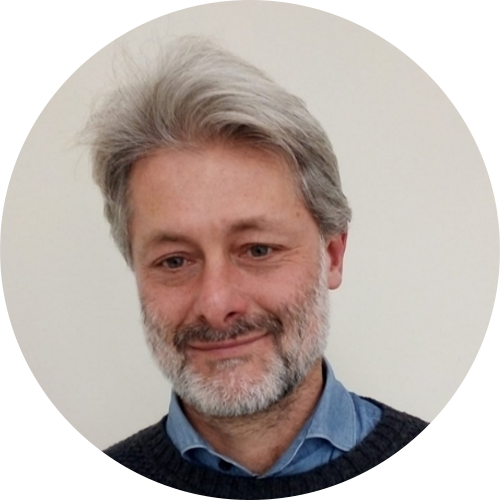
Prof. Ferruccio Pastore
Is the Director of FIERI (fieri.it), an independent research institute on migration, mobility and diversity based in Torino (Italy) since 2009. He was previously Deputy Director at CeSPI (Centre for International Policy Studies, Rome). Besides research, he has worked as an adviser for Italian institutions and international organizations. With a background in international law (PhD EUI 1996) and political sociology, he has written extensively on migration policies and politics. He is a member of the Expert Group on Economic Migration (EGEM) of the European Commission. He sits on the Advisory Board of the Western Balkans Migration Network. He is also an international fellow of the French Institut Convergences Migrations and of the Euro-Mediterranean Research Network on Migration. Among the international research project he has recently coordinated: https://www.bridges-migration.eu/. For a full list of publications: https://fieri.it/wp-content/uploads/2023/11/Publications-F.Pastore-2022.pdf
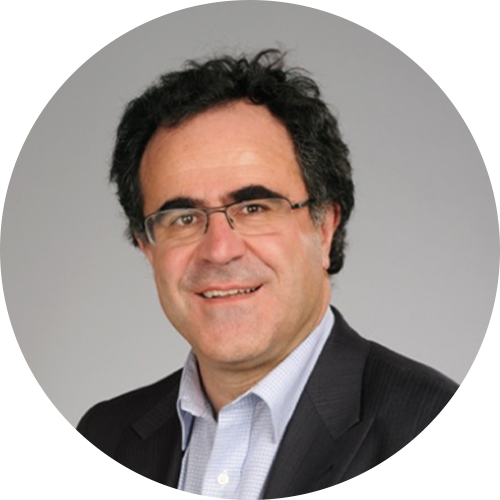
Prof. Gianni D’Amato
Is a professor at the University of Neuchâtel and director of the Swiss Forum for Migration and Population Studies (SFM). His research interests include citizenship, transnationalism, populism, and the history of migrations. After completing his master’s degree in sociology at the University of Zurich, D’Amato focused his doctoral thesis on citizenship and the integration of migrants from a comparative perspective.
He is the author of “From Foreigner to Citizen: The Debate on the Political Integration of Immigrants in Germany, France, and Switzerland” (Lit Verlag, 3rd edition, 2005), and has also co-written and co-edited, among others, “City Challenge: Urban Migration Policy in Switzerland and Europe” (Seismo Verlag, 2005) and “Politicizing with the Foreigner: Right-wing Populism and Migration Policy in Switzerland since the 1960s” (Zurich, Chronos Verlag, 2008).
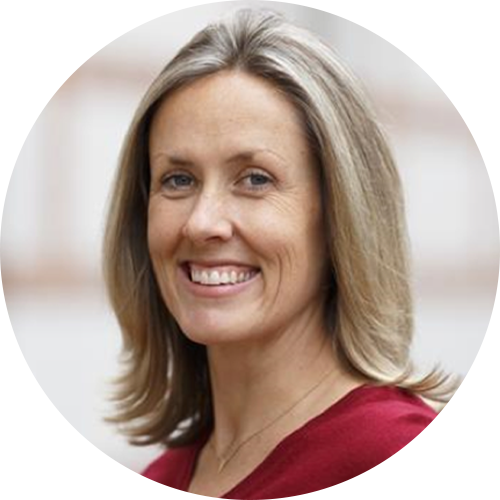
Dr. Kelsey Norman
Is a Fellow and Director of the Women’s Rights, Human Rights & Refugees program at the Edward P. Djerejian Center for the Middle East at Rice University’s Baker Institute for Public Policy. Her research focuses on the politics of migration and refugee hosting in the Middle East and North Africa, as well as globally. Her book, Reluctant Reception: Migration, Refugees and Governance in the Middle East and North Africa, was published in 2021 by Cambridge University Press. The book was selected as one of Choice’s Outstanding Titles for 2021 and was awarded an honorable mention by the American Political Science Association’s Migration and Citizenship 2021 Best Book Committee. Her academic writing has also been published in peer-reviewed journals including the European Journal of International Relations, International Studies Review, the Journal of Ethnic and Migration Studies, the Journal of North African Studies, Migration Politics and International Migration Review, among others, and her writing for popular media outlets has been published in The Washington Post, Foreign Policy, Foreign Affairs and The Atlantic. She holds a PhD in Political Science from the University of California Irvine.
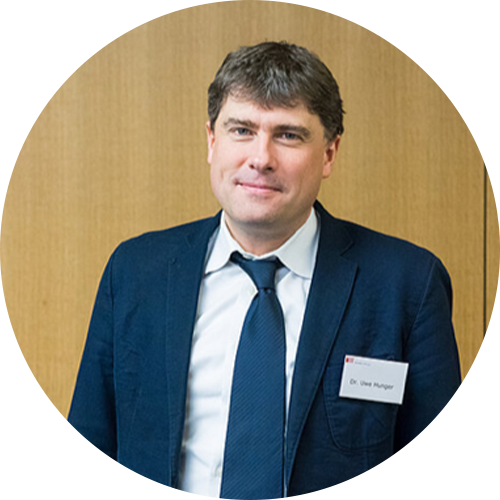
Prof. Uwe Hunger
Has served as a Professor of Political Sciences with a focus on Migration at the Department of Social and Cultural Sciences at Fulda University of Applied Sciences since 2019,. Prior to this, from 2010 to 2019, he held visiting professorships and research appointments at various universities including Münster, Osnabrück, and Siegen in Germany. His academic journey began in 1999 when he became an Assistant Professor at the University of Münster, Germany, following which he undertook postdoctoral fellowships at the Universities of Osnabrück, UCLA (Los Angeles), UCSD (San Diego), and ICU (Tokyo). During this time, Prof. Uwe Hunger earned his habilitation (venia legend) in political science.
Prof. Uwe Hunger commenced his academic pursuits with studies in political science, sociology, economic policy, German language and literature, and philosophy at the University of Münster, Germany, culminating in a doctorate in political science in 1999.
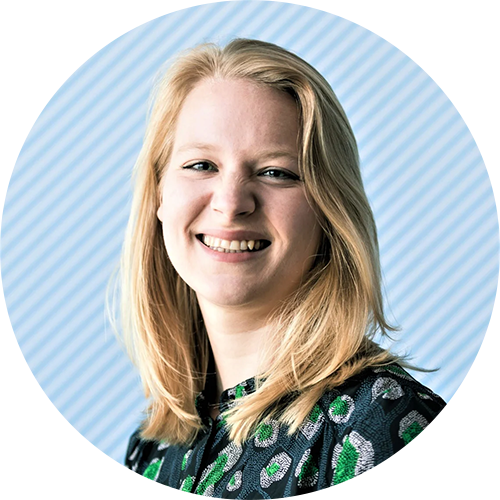
Porf. Katharina Natter
Is Senior Assistant Professor at the Institute of Political Science of Leiden University and Fellow of the International Migration Institute (IMI). She earned her Master in Comparative Politics from SciencesPo Paris and PhD in Political Sociology from the University of Amsterdam. Natter’s research investigates migration politics from a comparative perspective, with a particular focus on the role of political regimes in immigration policymaking. Her work seeks to connect migration policy theory with broader social science research on modern statehood and political change and to bridge theorizations of socio-political processes in the ‘Global South’ and the ‘Global North’. She has conducted extensive field research on the politics of migration in Morocco and Tunisia, as well as large-scale data collection and coding of migration policies in Europe and beyond. Natter is currently involved in two large-scale research projects on the role of knowledge in European migration politics as well as the link between autocratization and immigration policy worldwide. Her book The Politics of Immigration Beyond Liberal States has been published by Cambridge University Press in 2023. Since 2011, Katharina Natter is also involved in Asylos, an NGO providing Country of Origin research for lawyers representing asylum seekers across Europe. She speaks German, French and English proficiently, and Dutch, Portuguese and Arabic at intermediate levels.
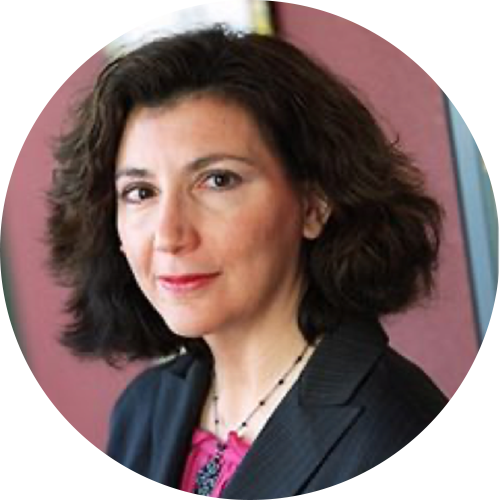
Prof. Jocelyne Cesari
Holds the Chair of Religion and Politics at the University of Birmingham, United Kingdom. At Georgetown University, she is a senior fellow at the Berkley Center for Religion, Peace, and World Affairs. Since 2018, she has been the T. J. Dermot Dunphy Visiting Professor of Religion, Violence, and Peacebuilding at Harvard Divinity School. President elect of the European Academy of Religion (2018-19), her work on religion and politics has garnered recognition and awards: 2020 Distinguished Scholar of the religion section of the International Studies Association, Distinguished Fellow of the Carnegie Council for Ethics and International Affairs and the Royal Society for Arts in the United Kingdom.
Her most recent publications are: We God’s People: Christianity, Islam and Hinduism in the World of Nations, (Cambridge University Press 2022), What is Political Islam? (Lynne Rienner Publishers, 2018 book award of the International Studies Association); Islam, Gender and Democracy in a Comparative Perspective (Oxford University Press, 2017), co-authored with Jose Casanova.
Her recent achievements include:
- Elected Officer of the Council of the Scientific Society for the Study of Religion, 2021-26
- Chair Elect of the Religion and IR Sectionof the International Studies Association (ISA), 2022-24
- Fellow of the Royal Society for Arts, London, 2017-Present
- Distinguished Scholar of the Religion and International Relations Section of the ISA, 2020
- Book Award of the Religion and IR Section of the International Studies Association, 2019
- President-Elect of the European Academy of Religion, 2018-19
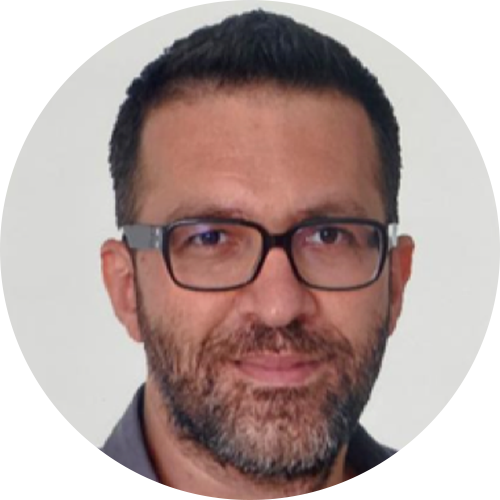
Pr. Alex Toshkov
Alex Toshkov is a historian of East-Central Europe and the Balkans in the modern period. His monograph, Agrarianism as Modernity in 20th c Europe: The Golden Age of the Peasantry, published by Bloomsbury in 2019, explores the articulation of a politicized peasant subjectivity in the interwar period and the attempt to elaborate an alternative modernity between capitalism and communism. A professor at Euromed since 2021, he has taught theoretical and methodological courses in EMADU, EBS, ISJP, and FSHS. He is the director of the Euromed Language Center, which is currently reimagining English instruction at the university based on leveled, inter-faculty groups.